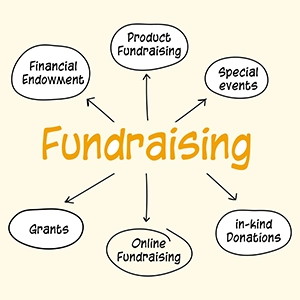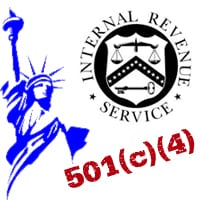It is essential to understand the different tax-exempt classifications under section 501(c) of the Internal Revenue Code when establishing a new nonprofit organization in the United States. An organization’s tax-exempt classification determines its eligibility to receive tax-deductible contributions and other benefits and its ability to engage in lobbying and political campaign activities. This article offers a high-level comparison of three common types of 501(c) tax-exempt classifications: 501(c)(3) charitable organizations, 501(c)(4) social welfare organizations, and 501(c)(6) business leagues.
501(c)(3) Charitable Organizations
Purposes
501(c)(3) organizations operate exclusively for charitable, religious, educational, scientific, literary, testing for public safety, fostering national or international amateur sports competition, and preventing cruelty to children or animals. For purposes of section 501(c)(3), the term charitable is used in its generally accepted legal sense and includes:
- Relief of the poor, the distressed, or the underprivileged
- Advancement of religion
- Advancement of education or science
- Erecting or maintaining public buildings, monuments, or works
- Lessening the burdens of government
- Lessening neighborhood tensions
- Eliminating prejudice and discrimination
- Defending human and civil rights secured by law
- Combating community deterioration and juvenile delinquency
Public Charity vs. Private Foundation
Every 501(c)(3) organization is classified as either a private foundation or a public charity. Private foundations and public charities are primarily distinguished by the level of public involvement in their activities. Public charities normally receive a significant portion of their financial support from the general public or governmental units and interact more with the public.
A private foundation is typically funded by a single person, a family, or a company. Private foundations are subject to stricter operating restrictions because they are less open to public scrutiny than public charities. They are subject to certain excise taxes for failure to comply with those restrictions.
Private foundations are further classified between private non-operating foundations and private operating foundations. The main difference is that private operating foundations actively “operate” or conduct their own charitable programs. Because of this major difference, private operating foundations are subject to the same regulations as public charities on a few key matters, which are generally more favorable than the rules applicable to non-operating foundations.
Lobbying
Lobbying is any attempt to influence legislation, including acts, bills, resolutions, or ballot initiatives by Congress, state legislatures, local councils, or similar governing bodies.
A public charity is not permitted to engage in substantial legislative activities. If lobbying activities are substantial, a 501(c)(3) organization may fail the operational test, risk losing its tax-exempt status, and, in certain cases, be liable for excise taxes.
Like public charities, private foundations will jeopardize their 501(c)(3) status if lobbying is a substantial part of their activities. However, private foundations are subject to a significant excise tax on their lobbying expenditures, such that the excise tax generally acts as a lobbying prohibition for private foundations. A limited exception to this lobbying prohibition, known as the “self-defense” exception, applies if the communication addresses legislation that affects the foundation’s existence, powers and duties, tax-exempt status and/or deductibility of contributions.
Political Campaign Activities
All 501(c)(3) organizations are prohibited from directly or indirectly participating in or intervening in any political campaign on behalf of (or in opposition to) any candidate for elective public office. Prohibited political campaign activities include any statements made by or on behalf of the organization in favor of or in opposition to any candidate for public office and contributions to political campaign funds. Violating this prohibition may result in denial or revocation of tax-exempt status and the imposition of excise taxes on the organization.
Tax-Deductibility and other Characteristics
Donations to 501(c)(3) organizations are tax-deductible, though the deductibility limits vary between public charities and private foundations (and generally are more generous for public charities). In addition, 501(c)(3) organizations are generally exempt from state income tax exemption and state sales tax exemption (although some states only grant sales tax exemption to a narrow subset of 501(c)(3) organizations). 501(c)(3) organizations are also generally eligible for the nonprofit mail rate, which provides a significant discount.
Applying for Tax-Exempt Status
Organizations seeking 501(c)(3) tax-exempt status must file the Form 1023 or Form 1023-EZ. Churches that meet the requirements of IRC Section 501(c)(3) are automatically considered tax-exempt and are not required to apply for and obtain recognition of tax-exempt status from the IRS, although many churches choose to apply for tax-exempt status to obtain the certainty of the IRS’s determination. A written IRS determination can also simplify applying for other benefits, like state tax exemptions.
501(c)(4) Social Welfare Organizations
Purposes
501(c)(4) organizations must be operated exclusively for the promotion of social welfare. The tax regulations specify that an organization operates exclusively to promote social welfare if it is primarily engaged in promoting the common good and general welfare of the people of the community.
Lobbying
501(c)(4) organizations may engage in unlimited lobbying related to their exempt purposes without jeopardizing their tax-exempt status. This ability to engage significantly in lobbying activities is a key reason many organizations choose the 501(c)(4) designation.
Political Campaign Activities
501(c)(4) organizations can engage in political campaign activities if not the organization’s primary activity.
Tax-Deductibility and other Characteristics
Donations to a 501(c)(4) organization are not tax-deductible. In addition, the names and addresses of donors do not need to be disclosed to the IRS in its annual Form 990 filing. By contrast, all 501(c)(3) organizations must disclose their donors to the IRS in their Form 990 filings, and information about private foundation donors is made publicly available by the IRS. Some organizations may also choose to seek 501(c)(4) status (especially as an alternative to 501(c)(3) private foundation status) if their donors do not need the benefit of tax-deductibility of their donations, and they would benefit from the more flexible rules applicable to 501(c)(4) organizations.
Applying for Tax-Exempt Status
Organizations seeking 501(c)(4) tax-exempt status must file the Form 8976 Notice of Intent to Operate Under Section 501(c)(4), generally within 60 days of its formation. In addition to submitting Form 8976, organizations operating as 501(c)(4) organizations may also choose to file Form 1024-A to request recognition of tax-exempt status. Submitting Form 1024-A does not relieve an organization of the requirement to submit Form 8976.
501(c)(6) Business Leagues
Purposes
501(c)(6) organizations include business leagues, chambers of commerce, real-estate boards, and boards of trade. A business league, which is perhaps the most common type of 501(c)(6) organization, is an association of persons having a common business interest, the purpose of which is to promote such common business interest and not to engage in a regular business of a kind ordinarily carried on for profit. Business leagues include trade associations and professional associations. To be considered exempt, a business league’s activities must be devoted to improving the business conditions of one or more lines of business as distinguished from performing particular services for individuals.
Lobbying
501(c)(6) organizations may conduct unlimited lobbying to further their exempt purposes without jeopardizing their tax-exempt status. An organization that engages in these activities must give its members notice of amounts of membership dues allocable to nondeductible lobbying expenditures; failure to provide such notice may subject the organization to a proxy tax on the amount of the expenditures.
Political Campaign Activities
501(c)(6) organizations are permitted to engage in political campaign activities if they are not the organization’s primary activity.
Tax-Deductibility and other Characteristics
Donations to a 501(c)(6) organization are not tax-deductible.
Applying for Tax–Exempt Status
Organizations seeking 501(c)(6) tax-exempt status must file the Form 1024 with the IRS.
Keep in mind that organizations engaging in lobbying and political campaign activities may also be subject to federal, state, and, in some cases, local lobbying registration and disclosure reports, depending on relevant factors, including the amount spent on the activities, whether lobbyists are retained, and the locations of such activities.
Choosing the Classification of Your Organization
It is critical to correctly determine which tax-exempt status is most appropriate based on your organization’s key objectives. Failure to apply for and obtain the correct tax-exempt status may subject an organization to unanticipated regulatory burdens and constraints and leave it unable to accomplish its essential goals. While seeking reclassification of an organization’s tax-exempt status is possible, it can be a slow and complex process. As such, it is best to apply for the most strategically beneficial tax-exempt status from the outset.
- Karen l. Wu
- Karen l. Wu
- Karen l. Wu
- Karen l. Wu
- Karen l. Wu
- Karen l. Wu














